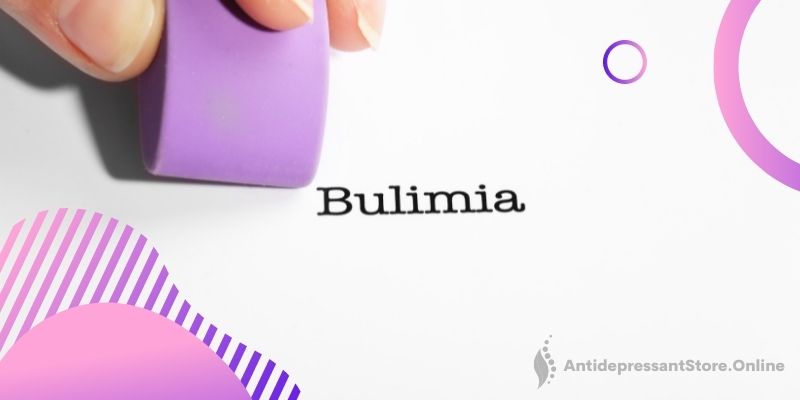Antidepressant prescriptions are an integral part in overall treatment of bulimia. Medication supplements improve psychotherapy and significantly raise recovery rates.
Bulimia nervosa is an eating disorder, quite common among instances of mental health ailments, and it affects a person’s eating habits. People suffering from this illness display common symptoms of being overly preoccupied with food and eating. Furthermore, it is always followed by anxiety and a relentless feeling of guilt. A person afflicted by this disorder feels an increasing sense of remorse after meals, and in most cases feels the need to vomit food that has been consumed.
For the vast majority, the condition becomes obvious and is diagnosed at later stages, which complicates the treatment. Symptoms develop gradually and are very subtle early on, therefore they might run unnoticed for many years and are almost impossible to detect at the onset.
The highest risks of developing bulimia symptoms are among women between the ages of 14 to 30 years old, as well as during pregnancies and also among children and adolescents in general.
Most doctors consider bulimia to be the outcome of existing latent or obvious mental health disorders that a person might have. Every third patient undergoing bulimia treatment also displays various accompanying mental health disturbances, such as predisposition to anxiety, depression and obsessive compulsiveness. Moreover, two out of three patients are unhappy with their looks or their bodies; which, would be fair to say, is the main reason bulimia symptoms take hold.
Treatment of bulimia nervosa
If bulimia is diagnosed at an early stage, then the treatment is simple and consist of psychotherapy following by correction of meal scheduling and improving the diet balance. Still, only 20% of instances of bulimia are treated without the use of prescription medication.
For the most part, the treatment course is supplemented with antidepressants.
Antidepressants are prescribed for bulimia for two main reasons:
- Because the disorder is psychological, it also means chemical disbalance in the brain (serotonin, dopamine) and antidepressants help to restore balance.
- This eating disorder is always accompanied by stress, depression and anxiety, and it hinders recovery, hence antidepressants are essential in the treatment.
Fluoxetine and Escitalopram are two of the most used substances in the treatment of bulimia.
In fact, it was observed that the tricyclic antidepressants were the most effective. According to statistics, this pharmaceutical group normalizes person’s serotonin levels which in turn elevates psycho-emotional background, improves sleep and restores healthy appetite.
As an added benefit of Fluoxetine, the patient also receives a mild stimulating effect. This is the most stable antidepressant for bulimia, and it could still be taken during active hours, as Fluoxetine does not cause drowsiness and rarely leads to addiction.
Fluoxetine dosage comprises 60 mg in the span of 24 hours. It needs to be split into three doses – one 20 mg Fluoxetine capsule every 8 hours. Fluoxetine weight loss dosage differs (obesity cases excluded), as only 20 mg is required in the span of 24 hours at the most – one capsule at the start of the day with plenty of water.
Fluoxetine can be purchased with a brand name Prozac. If you can not buy Prozac, look for alternative brands or manufacturers. If the product contains at least 20 mg of Fluoxetine, then it is suitable for the therapy.
IF you have already been using Fluoxetine for some time, and you would like to switch to an alternative, then we can recommend buying Citalopram or Escitalopram. These products also belong to the tricyclic antidepressant group and possess similar properties. Theoretically, buying several types of antidepressant may improve the therapy results.
Do keep in mind that all therapy decisions must be made in strict accordance with the recommendations of a licensed health care professional. Self-medication is quite dangerous and may lead to unexpected side effects and worsening condition.

